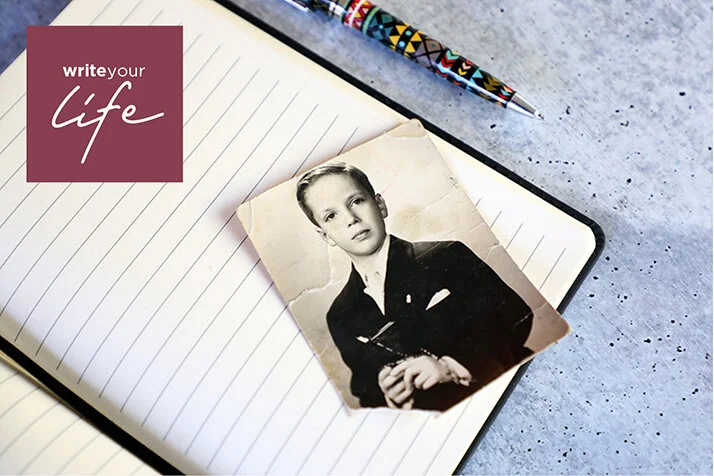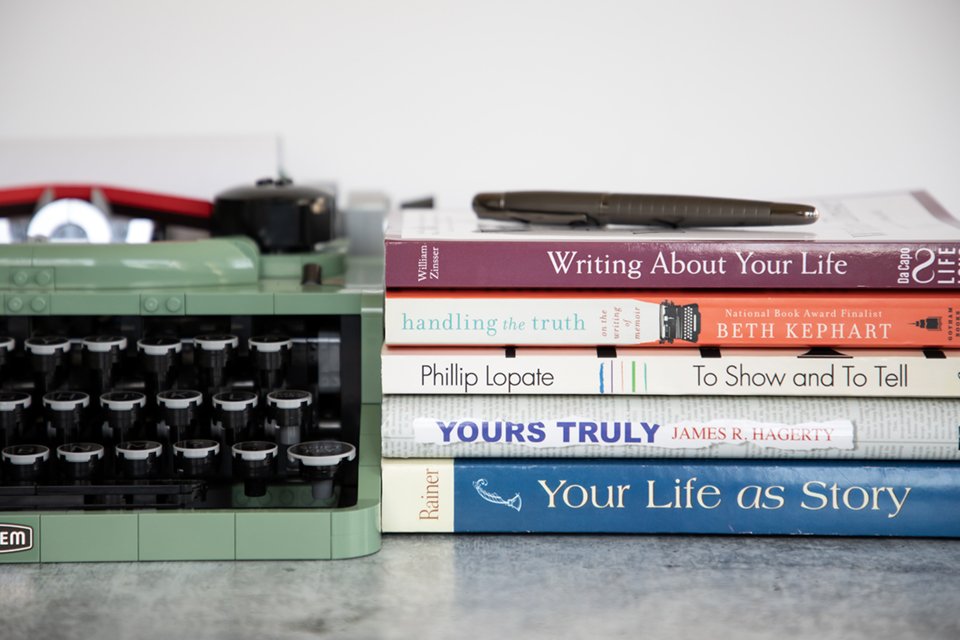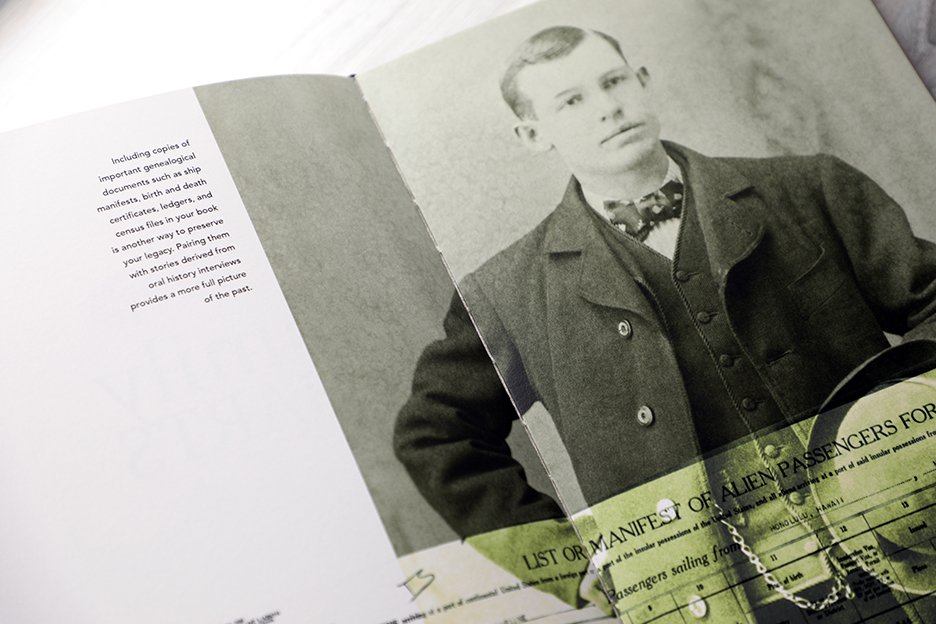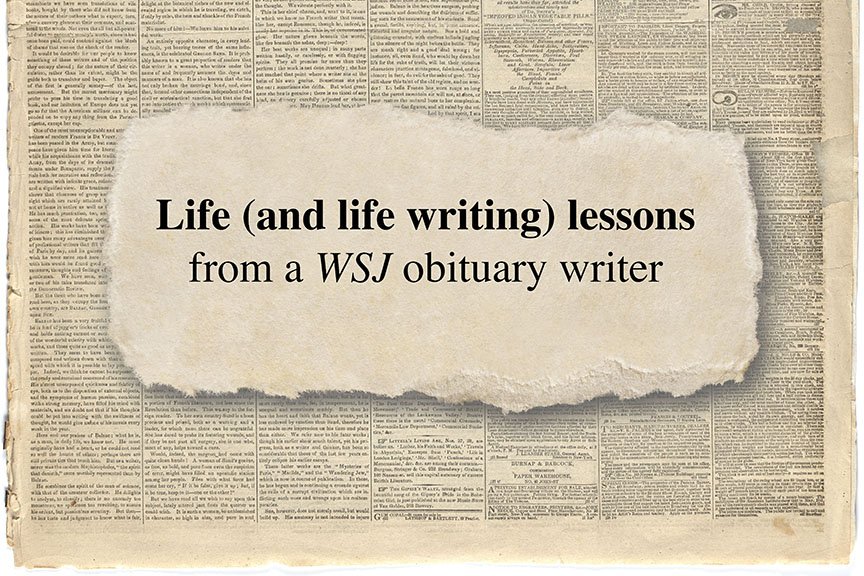Why you should stop researching your memoir now
Ten more family tree hints just popped up on your Ancestry account.
Your sister called with news that she found another box of Nanna’s family photos in the basement.
That family history blogger you love just posted a great review of a life writing book that you NEED to read!
Stop! Seriously, every day will bring a new “reason” you shouldn’t start writing your memoir. It’s time to focus on the reasons that you should.
While researching your memoir is an intensive—and necessary—endeavor, getting caught up in a never-ending web of research will only delay your writing. So, how do you know when you’ve gathered enough research to finally put pen to paper?
3 signs your research is strong enough to begin your memoir:
You’ve got more than a file folder filled with research materials.
You’ve got a stack of papers delineating a lot of puzzle pieces: dates for key events on your life timeline, photos showing places and people involved in your stories, photocopies of pages from your journals, newspaper clippings providing historical context. And you’ve got an idea in your head for the path your memoir will take. That’s enough, I say, to begin putting your puzzle together. A crucial point is that you are writing toward truth. “At some point, we have to trust what we have and what we can make of what we have,” Beth Kephart writes in Handling the Truth. “We can be absolutely sure of just one thing in all of this: that our hearts are true throughout the making of our story.”
You feel compelled to begin telling your stories but wonder if you’ve got all the facts straight.
Unless you are questioning the essential bedrock of your story, it’s time to forget about the facts and focus on your truth. When you have finished a first draft of your memoir, then you can turn your attention to fact-checking historical information such as dates or place names. I suggest devising a system early on for earmarking facts that need to be checked later: It can be as simple as a question mark in the margin or using only a pink highlighter for facts to come back to. Don’t worry about these details while you are in the flow of writing—they will slow you down unnecessarily and hamper your creativity.
Your curiosity leads you down one research rabbit hole after another.
Let’s face it, researching can be fun. You unearth something interesting about an ancestor (oh, how I’d love to know more!); discover that your neighbor was embroiled in your family drama (ah, another interview opportunity!); learn that the street your grandfather grew up on was named for his hometown in Italy (how the heck did that come about?!). Many of these nuggets have potential to add wonderful details to your story, but do they all? Probably not. Don’t go down a research rabbit hole unless you expect to find something that, when stitched into your story, helps the reader rather than distracts them. “Sidestep or leap over those rabbit holes, work on, and you’ll complete your book,” memoirist Barbara Scoblic writes. “Go down the rabbit holes and you’ll wind up with an encyclopedia instead of a memoir.” Indeed.
3 fun—and fast—ideas for researching your memoir
Before you begin writing:
Find historical context through newspapers.
No matter what time in your life your memoir hones in on, adding color and texture specific to the era will enrich your writing. Head to the library and find the local newspaper from the day you were born, perhaps. Or read the major headlines from big city newspapers on various days within your time period—the Great Depression, the Vietnam War, the carefree mid-1960s. You may find a few telling details to include, or simply get inspired by the prevailing mood of the time. Allow yourself one or two days for this research, then move on.
Midway through your writing journey:
Revisit your journals.
If you have kept a diary throughout your life and used it as a reference when deciding what to mine for your memoir, chances are you went through it fairly closely in the planning stages. Maybe you took notes, captured full quotations to include in your narrative, even narrowed down your memoir’s time frame as a result of your journal keeping. Still, it can’t hurt to reread some pages when you’re in the midst of writing your memoir. The immediacy of journal writing—the perpetual present tense, the unknowing of what is to come—can startle us back into a state of emotion; it can spark ideas that didn’t seem relevant early on but that may prove to have great resonance now that your story is unfolding.
When you’re stuck:
Talk to someone.
You thought you’d remember every detail of the day your dad walked out, but the picture is getting murky. You can’t recall why your family left that spring break vacation in Florida early, but you know in your bones it was something big. Whatever notion you’re stuck on, asking a family member, friend, or other involved party what they recollect can be helpful. If you can’t come to a consensus about “what really happened,” either use language to reveal your ambivalence (“I remembered things differently from my sister…” or “I can only use my imagination to paint a complete picture of that day…”), or write a composite of the event that is faithful to the truth as you experienced it. “If you strive for emotional honesty and permit yourself the vulnerability it requires, your reader will in all likelihood forgive your factual alteration, omission, or embellishment of details,” Tristine Rainer writes in Your Life as Story—that is, if you write authentically and do not intentionally alter events to fit a new narrative.
Yes, research is a key component of crafting your life story. Accuracy is “a first-and-foremost objective of memoir,” Marion Roach Smith has written. Just remember, there are times when setting aside the task of researching is your best course of action. Write. Just write. You can always come back to the research later. If you don’t begin to get your stories onto the page, all that research will have been a mere hobby.
































Is there ever really a ‘right’ time to start writing your memoir? There’s not, in my opinion, but here are two questions to ask yourself to help you decide.